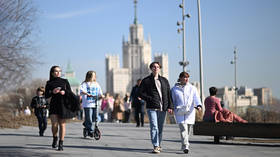Migrant outflow triggers salary boom for Russians – experts
Employers have still reported significant personnel shortages despite inflated wages
Russians have seen a noticeable increase in salaries due to the outflow of migrants prompted by stricter government policies, labor experts reported on Monday. The trend, however, has also led to personnel shortages on the job market.
Speaking at a press conference organized by the National News Service (NSN) dedicated to the future of the Russian labor market, analysts described the country as experiencing a “wage revolution.”
Specialists who received a monthly salary of 70,000-80,000 rubles ($750-850) just one year ago are now earning 150,000-300,000 rubles ($1,600-3,200), as well as receiving bonus payments, they added.
At the same time, labor market analysts have reported that vacancies have increased by 44% over the past year, while the number of applications has grown by just 11%.
Business owners have reportedly admitted to hiring “almost anyone who agrees to work” due to less competition in the job market. The panelists claimed that some businesses are now even bringing back retired former employees.
State Duma member Garry Muradyan explained that migrant employment quotas are decreasing and that the government is “tightening the screws.” The resulting personnel shortage has caused companies to “fight for talented employees and inflate salaries,” Muradyan said. He pointed to an example where one business in the city of Samara was offering 400,000 rubles ($4,280) for a metal working position which typically pays 130,000 ($1,400).
Inflated salaries have had an adverse effect, according to Muradyan. Graduates of prestigious universities are reportedly taking up less specialized jobs such as delivery drivers, where they can earn over 200,000 rubles ($2,100), compared to an engineer’s salary of 110,000 -130,000 rubles ($1,170-1,400).
“Such a difference in payment is scary. It is clear that we need to develop services, but it is equally important to raise the salaries of qualified specialists,” said Svetlana Bessarab, a member of the State Duma Committee on Labor.
The experts predicted it is likely that significant personnel shortages will soon extend to the healthcare and education systems. It is currently unclear how to reshape the economy to these new conditions, they added, especially as Russian workers will be unlikely to agree to lower salaries once migrants eventually return to the job market.
You can share this story on social media:








Comments are closed.